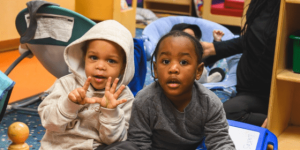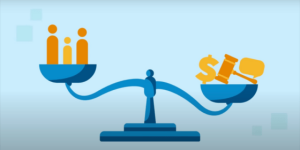 Field visits to 20 projects selected as semi-finalists will be conducted from 1 to 21 September in the next phase of the 2006-2007 round of the Experiences in Social Innovation competition organized by ECLAC and the W.K. Kellogg Foundation.
Field visits to 20 projects selected as semi-finalists will be conducted from 1 to 21 September in the next phase of the 2006-2007 round of the Experiences in Social Innovation competition organized by ECLAC and the W.K. Kellogg Foundation.
The 20 projects chosen by the Selection Committee will be evaluated by specialists and, in some cases, by ECLAC staff. The semi-finalists come from Argentina (2), Bolivia (2), Brazil (6), Chile (1), Colombia (2), Ecuador (1), El Salvador (2), Honduras (1), Mexico (2) and Peru (1).
Most of the projects are carried out by national or international non-governmental organizations and municipal authorities, and cover the following areas: education (7), rural development (4), youth (3), volunteer work (3), health (2) and corporate social responsibility.
The Selection Committee has chosen these initiatives from 10 countries for their high degree of innovation, replicability and sustainability under conditions that are often adverse. Other criteria include the project’s capability to build associativity and community leadership, elements that contribute to building social capital.
Information gathered in on-site visits will be used to select the top prize-winners, who will be invited to the Innovation Fair, to be held in Porto Alegre, Brazil, from 4 to 6 December.
Winning projects will receive the following awards: first prize, US$30,000; second prize, US$20,000, third prize, US$15,000, fourth prize, US$10,000; and fifth prize, US$5,000. Finalist and prize-winning projects will be widely disseminated throughout the region.
Launched in 2004, the competition identifies new initiatives in the field of social development to learn from and disseminate successful experiences on behalf of the poorest sectors in the countries of the region. To date, some 3,500 projects have been submitted in three rounds. Submissions for the fourth round will open next 6 December.
First-prize winner of the 2005-2006 round was a programme for community response to domestic violence in Peru. Second-prize was awarded to an Argentine project to rehabilitate juvenile lawbreakers through an efficient mentoring system. Third-prize winner was a project to produce trout in the Peruvian highlands. Other prize-winners include a municipal health project in Paraguay and a programme to integrate visually-impaired students into normal schools in Brazil.
In the 2004-2005 round, the first-prize winner was Haiti’s “Leche Agogó” milk production project, which combines modern technology with traditional wisdom. An Argentine project to cultivate Andean grains was awarded second place. Third prize went to a gang and drug abuse prevention programme among disadvantaged Guatemalan youths; fourth prize was awarded to a cooperative of organic family farms in Brazil; and fifth place went to a community health project, also in Brazil.
Selected Projects In The Second Phase Of The Contest
Argentina
- Cepram (Centro de Promoción del Adulto Mayor)
“Acompañamiento Telefónico Amayores (Atm)” - Fundacion Alternativa Social y Educativa
“Programa de Prevención de Violencia através de Proyectos de Resolución de Conflictos y Mediación de Pares en Escuelas con niños y jóvenes en riesgo yen grupos de Educación no Formal”
Bolivia
- Fundación Pueblo
Hospedaje Estudiantil en Familia - Plan Internacional Inc. Bolivia “Oficina de Programa Altiplano”
Estrategias para Recuperar el Altiplano en los Municipios de Pucarani y Sica Sica, departamento de La Paz – Bolivia
Brasil
- Associação Alfabetização Solidária (AlfaSol)
Alfabetização Solidária – AlfaSol - Associação dos Pequenos Agrossilvicultores do Projeto de Reflorestamento Econômico Consorciado e Adensado – Projeto Reca
- Circo de Todo Mundo – Centro Recreação de Atendimento e Defesa da Criança e Adolescente
Programa de Erradicação do Trabalho Infantil e Proteção dos Adolescentes no Trabalho Doméstico
em Belo Horizonte (Minas Gerais) - EMEF Desembargador Amorim Lima
Prometo Amorim Lima - Associação Passos de Integração
Programa Acolher e Cuidar. Orientação, Apoio e Acompanhamento de Crianças e Adolescentes Egressos de Abrigos
da Cidade de Itajaí (Santa Catarina). - Secretaria da Saúde e Ação Social de Sobral (Ceará)
Trevo de Quatro Folhas – Estratégia de Redução da Morbimortalidade Materna, Prerinatal e Infantil
Chile
- Codelco
Proyecto Comunidad Virtual Aldeaminera.cl
Colombia
- Corporación Oro Verde
Programa Oro Verde Certificado - Fundacion dar Amor – Fundamor
Mejoramiento de la calidad de vida de niños y niñas que conviven con VIH/Sida, y niños y niñas desprotegidos, a través del acceso a educación preescolar terapéutica
Ecuador
- Junta Parroquial de San Rafael de la Laguna
Manejo y Tratamiento de Aguas Residuales con Lenteja Acuática, Lechugín y Totora
El Salvador
- Asociación Intersectorial para el Desarrollo Económico y el Progreso Social, CIDEP
“Desarrollo del Modelo Alternativo de Educación Rural Preescolar en Comunidades Rurales” - Fundación Salvadoreña De Educación Y Trabajo Edytra / Poligono Industrial Don Bosco
Programa Miguel Magone y Laura Vicuña: Alternativa a la Violencia de las Pandillas Juveniles, Oportunidad de Insercion Laboral y Respuesta al Alto Indice de Emigración Salvadoreña
Honduras
- Christian Children’s Fund Honduras
El Trabajo de las “Madres Guías” efectividad en el Programa de Desarrollo del Niño
México
- Ednica, IAP Educación con el Niño Callejero (Institución de asistencia privada)
Yo trabajo por mi derecho a la Educación - Fronteras Unidas Pro Salud, A.C.
Programa “Dile a una Amiga: Promotoras de salud en la lucha contra el cáncer cérvico uterino en la comunidad indígena migrante de Tijuana”
Perú
- Instituto de Investigación Sociedad y Desarrollo
Educación Inclusiva: Una Educación para Todos
(Each of the selected projects will be visited by an expert between September 1st and 21st, 2007)
Complete information on this competition,
including multi-media materials in Spanish, English, French and Portuguese, is posted at: www.cepal.org/dds/innovacionsocial/portada_i.htm.
E-mail: innovacion.social@cepal.org
Telephones: (56-2) 210-2148/ 2451/2263.
Read more
- United Nations Conference on Desertification (UNCOD)
- Projects under consideration in the ECLAC/Kellogg Social Innovation
Competition 2006-2007 - Additional information and multimedia materials
Experiences in Social Innovation Award



